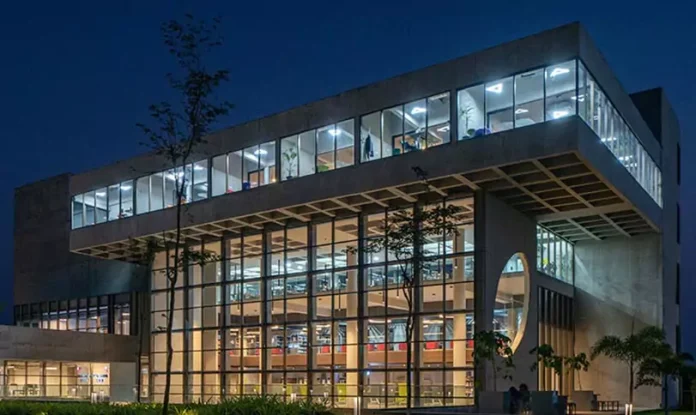The fashion industry is no longer just about trends and aesthetics; it has become a powerful platform for driving social change. This was the central theme of the recently concluded “Fashion as a Tool for Social Change” (FTSC) conference hosted by the Woxsen School of Arts & Design in Hyderabad. The two-day international event focused on “Cultural Preservation and Innovation,” attracting global experts, designers, and thought leaders to discuss critical topics like sustainability, craft revival, and inclusivity in fashion.
The Vision Behind FTSC
FTSC aimed to explore the dynamic intersection of fashion, culture, and social impact. The conference brought together influential speakers and industry leaders to discuss the evolving role of fashion in addressing global challenges. The event emphasized how design and innovation can contribute to sustainable practices while preserving traditional crafts and promoting diversity in the industry.
Key Highlights from the Conference
1. Sustainability in Fashion
One of the most pressing concerns in the fashion industry today is environmental sustainability. Fast fashion has significantly contributed to pollution, waste, and unethical labor practices. Prof. Margaret Bishop from Parsons School of Design delivered a compelling keynote speech on the urgency of sustainable fashion. She highlighted the importance of ethical sourcing, circular fashion, and eco-friendly materials in reducing the industry’s environmental impact. Her discussion encouraged brands and designers to adopt responsible production practices to ensure a greener future for fashion.
2. Craft Revival and Cultural Preservation
Traditional craftsmanship is at risk of being overshadowed by mass production. The conference underscored the importance of reviving indigenous crafts and supporting artisans. Nitin Kapoor, CEO of IBA Crafts, shared insights on how integrating technology with traditional techniques can create a sustainable ecosystem for artisans. By leveraging digital platforms, artisans can expand their reach, ensuring the survival of time-honored weaving, embroidery, and dyeing practices. The panelists stressed that promoting heritage crafts is not only an economic necessity but also a means to preserve cultural identity.
3. Technology’s Role in Fashion Innovation
Technology has revolutionized the fashion industry, making it more inclusive and sustainable. From AI-driven design processes to 3D printing and smart textiles, technological advancements are reshaping how fashion is created and consumed. The conference showcased case studies where AI and digital fabrication techniques have minimized waste, optimized resource utilization, and provided customized solutions for consumers. Discussions revolved around how emerging technologies can enhance transparency and accountability in the supply chain.
4. Fashion as an Inclusive Medium
Inclusivity has become a driving force in modern fashion. The FTSC conference spotlighted discussions on gender-neutral clothing, adaptive fashion for differently-abled individuals, and diversity in fashion representation. Designers and industry experts shared experiences on breaking stereotypes and fostering inclusivity through innovative designs and marketing strategies.
5. The Future of Ethical Fashion
The event also explored how brands can align with ethical fashion principles while maintaining commercial viability. Experts discussed the importance of fair wages, responsible sourcing, and transparent supply chains in building ethical brands. Panel discussions highlighted success stories of companies that have embraced sustainable models and achieved both social impact and profitability.
Woxsen’s Commitment to Fashion for Social Change
As a leading institution in arts and design, Woxsen School of Arts & Design is dedicated to fostering innovation and social responsibility in the fashion sector. By organizing events like FTSC, Woxsen continues to shape the future of ethical and sustainable fashion. The conference served as a platform for young designers, academics, and industry professionals to collaborate and develop actionable solutions for the evolving fashion landscape.
The “Fashion as a Tool for Social Change” conference at Woxsen School of Arts & Design marked a significant step in redefining fashion’s role beyond aesthetics. By focusing on sustainability, craft revival, technological innovation, and inclusivity, the event set the stage for a more responsible and conscious fashion industry. As the industry continues to evolve, it is imperative that designers, brands, and consumers embrace fashion as a means of cultural preservation and social transformation.
With growing awareness and efforts like FTSC, the future of fashion is poised to be not just stylish, but also ethical, sustainable, and inclusive.
Follow Swadesi for more such updates!




